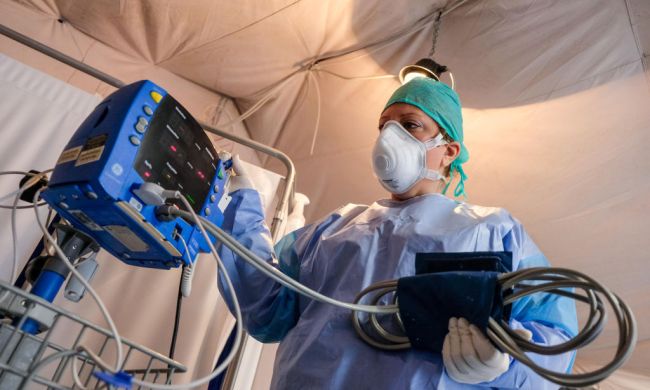In April, Americans started to receive stimulus checks as part of a $2 trillion initiative for the coronavirus financial relief. The Coronavirus Aid, Relief, and Economic Security (CARES) Act was signed into law on March 27 to address the economic fallout of businesses closing and workers being laid off.
But now we are more than halfway through the year, and coronavirus cases are still on the rise. In some states, many businesses have shut down after reopening due to a spike in cases and deaths, so we are still feeling the pandemic’s effects.
Since there is no immediate end in sight (until a successful vaccine is created and widely distributed), the federal government has been in talks about a sending out second stimulus check. The recently proposed Health and Economic Recovery Omnibus Emergency Solutions (HEROES) Act includes a proposal for the second round of stimulus checks. However, it should be noted that the bill could drastically change as it goes through the Senate.
Here’s what we know so far about the possibility of a second stimulus check program:

When can I expect the second stimulus check?
The timeline for this is tricky: The HEROES Act was introduced to the House of Representatives on May 12 and passed on May 15. The Senate has read the bill twice, the most recent being June 6. The Senate is currently on recess until Monday, July 20, and has 15 working days to debate the HEROES Act before the next break begins on August 10.
What all this means is that the Senate could possibly pass the bill between July 20-August 7, but even after that, a new bill to authorize the checks would also have to pass before the scheduled recess. President Donald Trump would also have to sign the new stimulus act into law.
The best-case scenario is that the Senate passes the bill before August 7, and the first checks could go out by the end of August or beginning of September, based on the previous stimulus check timeline. That’s all assuming a stimulus check remains in the bill.
The Senate resumes session from September 8-25, which is probably a more realistic timeline of when the HEROES Act would be passed accordingly. If the bill is passed in the Senate’s September session, the stimulus checks could start to be distributed anywhere from the end of September to mid-October.
How much money would a second stimulus check get you?
As it stands, Stimulus check amounts would be the same as the last round: ranging from $1,200 for an individual and $2,400 for joint filers.
Who qualifies for the second stimulus payment?
The considerable difference between the CARES Act and the HEROES Act is that the HEROES Act (as it currently stands) would allow anyone with a taxpayer identification number to receive a stimulus check. This means undocumented immigrants and most college students would be eligible for this round of stimulus checks, according to Forbes. Anyone with a social security number would also be eligible.
Republicans have discussed lowering the qualifying income for the second round of stimulus checks from $75,000 a year to $40,000 a year, which would significantly decrease the number of eligible people.
“I think the people who have been hit the hardest are people who make about $40,000 a year or less,” Senate Majority Leader Mitch McConnell said in a July 6 interview. “Many of them work in the hospitality industry, so that could well be a part of it.”
How would I get my stimulus check?
Like last time, you would receive your stimulus check through direct deposit. You’ve more than likely already set up your direct deposit information through the Internal Service Revenue (IRS) web portal for the initial round of stimulus checks. If you didn’t last time around, you can still enter your information on the IRS website, even if you don’t normally file taxes.
That said, many people had issues receiving their direct deposit — and the IRS website gave taxpayers looking for a status update a frustrating error message. Let’s hope the system works better this time around.
What does the Trump Administration and Republican-led Senate think about the stimulus checks?
Trump has been outspoken about his support for a second stimulus check, saying he’s “largely supportive of sending Americans another round of stimulus checks,” according to the Washington Post. Trump has even said he supports a larger check than the Democrats’ HEROES Act proposes, with speculations from Forbes proposing he’d lobby for a $2,000 stimulus check.
McConnell has been a bit more conservative in his wishes for a second stimulus check, including the $40,000 income limit. He also said during an interview in late June that the overall initiative would be less money than the CARES Act provided.
Trump and Senate Republications oppose the HEROES Act as it currently stands, with some Republicans wanting to focus on tax breaks for businesses rather than another check for individuals.



